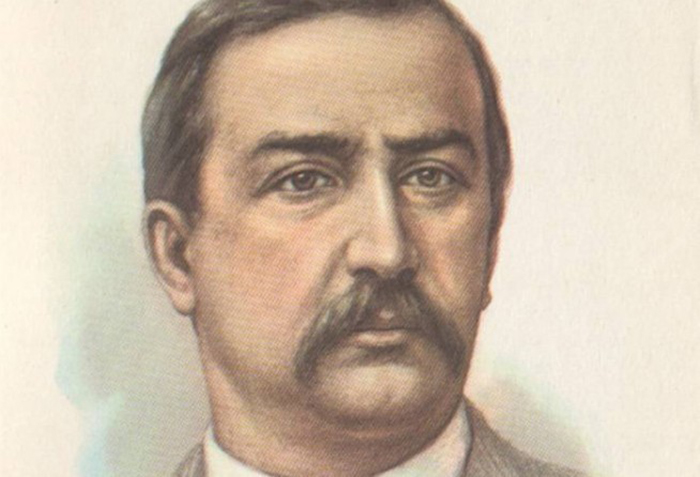One of the most lyrical composers of classical music: who is Alexander Borodin?
He is one of the “Russian Fives” known as the founders of the national Russian music school. He tried to extract all his musical thoughts from Russian folk music.

(1833-1887) Russian composer. He is one of the “Russian Fives” known as the founders of the national Russian music school. He was born on November 11, 1833, in St Petersburg. He was the son of a noble family. From an early age, he showed interest in both music and science. He composed a polka at the age of nine. Then he started taking music lessons constantly. In 1847 he composed a flute concerto and a string trio. He entered the Military Medical Academy in 1850 and graduated from this school in 1855. Throughout his life, he tried to combine his profession and music; therefore he could not be a productive composer. He was an auto-didact composer until he met Balakirev in 1862.
Alexander Porfiryevich Borodin (12 November 1833 – 27 February 1887) was a Romantic composer and chemist of Georgian-Russian extraction. He was one of the prominent 19th-century composers known as "The Five", a group dedicated to producing a "uniquely Russian" kind of classical music. Borodin is known best for his symphonies, his two string quartets, the symphonic poem In the Steppes of Central Asia, and his opera Prince Igor.
Balakirev, who was teaching Cui and Mussorgsky at the time, persuaded Borodin to become his student. Under Balakirev's close supervision, Borodin finished his first symphony in 1867. The symphony was first interpreted under Balakirev in 1869, and despite some of its inexperience, it was met with interest. While working on his First Symphony, he also composed his first opera, Brave Knights, in which he uniquely combined the works of some composers and his own music. The opera, which was staged in 1867 without the composer being announced, did not attract much attention. In the same year, he started composing his second Symphony and first composed four songs for use in this symphony. He liked these songs so much that he changed his mind and decided to compose a second opera. Thus, in 1869, he began work on the famous opera Prince Igor, which he could never quite finish until his death. He finished his second Symphony in 1877, in which many of the musical ideas used by Prince Igor are echoed; Although the piece was interpreted in the same year, it was not successful because the orchestra was not well prepared. He began his Third Symphony in 1886, but died of unexpected heart disease in St Petersburg on February 27, 1887, as he was completing the final movement.
Borodin is one of the most lyrical composers in the history of music. Despite composing as a leisure activity, he is at least as successful as a professional composer; He contributed greatly to the establishment of the Russian National music school. He tried to extract all his musical thoughts from Russian folk music. Already, the melodic and harmonic form of his compositions is established by modal scales. For example, in the tonal planes of his symphonies, he prefers modal relations to the tonal relations of the major-minor system; thus, the musical structure is established in the inflection of the dominant, leading note. With this feature, he went down in music history as the first composer outside of Germany to push the limits of tonality. With its chromatism and harmony with masterfully crafted musical incongruities, it is extremely rich, soft, and individual in listening. For example, this listening effect can be seen in the famous orchestral work called On the Steps of Central Asia with all its effectiveness despite its simple setup. Another uniqueness is the "Theme Derivation" method, which can only be compared to Liszt: both composers set up the first parts of their symphonies in an unusual way, with a single theme.
Borodin's musical talent is literally innate; Although he did not have any composition teacher, at the age of 22 he composed fugues that required knowledge of "polyphonic combination" easily and accurately. For example, in the famous Polovtsian Dances from Prince Igor's opera, the themes are articulated so naturally that it is as if Borodin had watched these dances and composed them right after. Borodin became famous in Europe before being recognized in Russia. Liszt's contribution cannot be overlooked in this. In 1877, when he went to Weimar for a job, he met Liszt, and a good friendship was established between them. With the help of Liszt, his First Symphony was interpreted with great success in Baden-Baden in 1880 and the composer, who became well-known in Europe, was met with great admiration when he went to Belgium in 1885-1886.
In terms of its technical characteristics, it shares the main purpose of the “Russian Five” with Aleksandr Borodin, Mili Balakirev, Cesar Cui, Nikolay Rimski-Korsakov, and Mussorgsky. This aim is to break the effects of Western music in classical Russian music and to establish a "national and original" Russian music school. Borodin always tried to compose within this framework and was very successful. Borodin's influences are seen in Debussy and Ravel, composers of the Impressionist school in the 20th century, and Sibelius and Stravinsky, composers of the neo-classical school.
